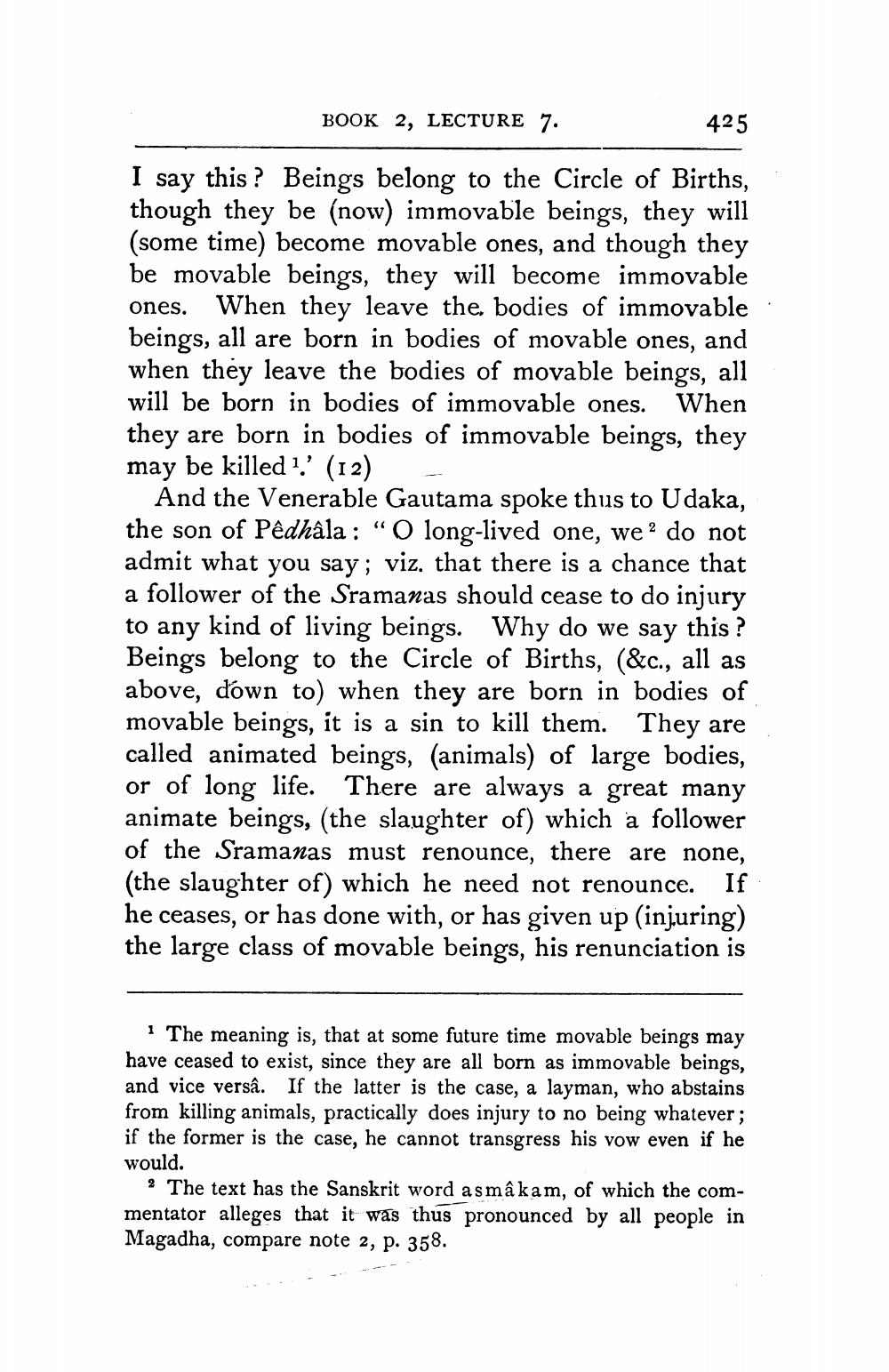________________
BOOK 2, LECTURE 7.
425
I say this ? Beings belong to the Circle of Births, though they be (now) immovable beings, they will (some time) become movable ones, and though they be movable beings, they will become immovable ones. When they leave the bodies of immovable beings, all are born in bodies of movable ones, and when they leave the bodies of movable beings, all will be born in bodies of immovable ones. When they are born in bodies of immovable beings, they may be killed 1.' (12)
And the Venerable Gautama spoke thus to Udaka, the son of Pêdhâla : "O long-lived one, we do not admit what you say; viz. that there is a chance that a follower of the Sramanas should cease to do injury to any kind of living beings. Why do we say this ? Beings belong to the Circle of Births, (&c., all as above, đówn to when they are born in bodies of movable beings, it is a sin to kill them. They are called animated beings, (animals) of large bodies, or of long life. There are always a great many animate beings, (the slaughter of) which a follower of the Sramanas must renounce, there are none, (the slaughter of) which he need not renounce. If he ceases, or has done with, or has given up (injuring) the large class of movable beings, his renunciation is
1 The meaning is, that at some future time movable beings may have ceased to exist, since they are all born as immovable beings, and vice versâ. If the latter is the case, a layman, who abstains from killing animals, practically does injury to no being whatever; if the former is the case, he cannot transgress his vow even if he would.
2 The text has the Sanskrit word asmakam, of which the commentator alleges that it was thus pronounced by all people in Magadha, compare note 2, p. 358.




